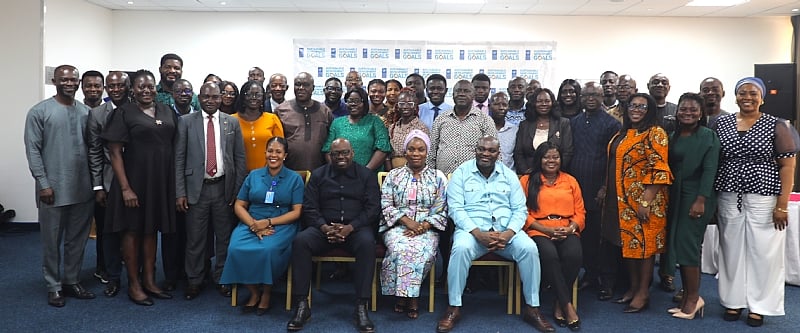Ghana, in partnership with the United Nations Development Programme (UNDP) and supported by the Global Environment Facility (GEF-8), has embarked on a significant initiative to address the pressing issue of biodiversity loss. The Biodiversity Finance Initiative (BIOFIN), a three-year program, aims to secure sustainable financing for environmental protection and safeguard Ghana’s rich biodiversity. This initiative directly responds to the global call for action embodied in the Kunming-Montreal Global Biodiversity Framework, adopted in 2022, which sets ambitious targets for halting and reversing nature loss. BIOFIN will specifically focus on implementing targets 18 and 19 of the framework, addressing the removal of harmful subsidies and scaling up investments in nature-positive activities. Crucially, this program will culminate in the development and implementation of a national biodiversity financing plan for Ghana, a roadmap for mobilizing resources and achieving the nation’s biodiversity conservation goals.
The BIOFIN program recognizes the critical need for adequate financial resources and innovative financing solutions to achieve the global biodiversity targets. Estimates suggest a staggering $700 billion annual funding gap for biodiversity worldwide. BIOFIN is uniquely positioned to address this challenge through a comprehensive approach. The program involves in-depth analysis, including baseline studies, policy reviews, and assessments of financial needs and existing biodiversity investments. This data-driven approach will inform the development of the national biodiversity financing plan, ensuring that it is grounded in a clear understanding of Ghana’s specific context and priorities. Furthermore, BIOFIN will focus on capacity building, empowering local stakeholders to effectively implement the plan and contribute to the broader National Biodiversity Strategy and Action Plan (NBSAP).
Prior to the official launch of BIOFIN in Ghana, a crucial stakeholder engagement and knowledge-sharing workshop was conducted. This proactive step ensured that key stakeholders, including government institutions, private sector actors, and civil society organizations, were fully informed about the program’s goals and objectives. This collaborative approach fostered a shared understanding of the program’s importance and secured buy-in from key actors, ensuring the program’s long-term success and sustainability. The workshop facilitated alignment between BIOFIN and existing national priorities, paving the way for effective implementation and integration within the broader environmental framework.
Representatives from both the UNDP and the Ghanaian government expressed their strong support for the BIOFIN initiative. Fati Attahiru, Acting Deputy Resident Representative of UNDP Ghana, highlighted the importance of innovative, cross-sectoral collaboration to achieve nature-positive outcomes. She expressed confidence in the Project Steering Committee’s ability to guide the development of a pioneering National Biodiversity Finance Plan. This plan, she noted, will be instrumental in mobilizing and leveraging financial resources, contributing to closing the global biodiversity funding gap. Dr. Peter Dery, Director of Environment at the Ministry of Environment Science and Technology (MEST), affirmed Ghana’s commitment to biodiversity conservation, highlighting the country’s progress in submitting national targets to the Convention on Biological Diversity and the ongoing finalization of the NBSAP.
Bruno Mweemba, BIOFIN Regional Technical Advisor, emphasized the global availability of financial resources for nature-positive actions. However, he stressed that the financing solutions developed through the BIOFIN program must be financially sound and attractive to potential investors. The generated financing plan must offer “bankable” solutions to attract funding from diverse sources, enabling Ghana to effectively bridge the significant financing gap. Mr. Mweemba’s emphasis on bankability underscores the practical focus of BIOFIN, ensuring that the initiative translates into tangible financial support for biodiversity conservation on the ground.
The BIOFIN approach, already implemented in over 133 countries, provides a proven framework for mobilizing resources and achieving biodiversity conservation goals. The program’s hallmark is its inclusive approach, engaging finance and environment ministries, the private sector, and civil society. This collaborative approach ensures that national development priorities are aligned with nature-positive investments. By fostering collaboration and building local capacity, BIOFIN empowers countries to effectively address the complex challenge of biodiversity loss and pave the way for a sustainable future. In Ghana, BIOFIN will not only contribute to the national conservation efforts but also serve as a valuable case study for other nations grappling with similar challenges.














